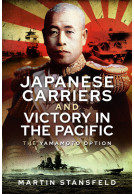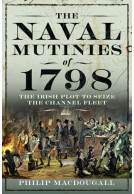Arctic Convoy PQ18 (Hardback)
25 Days That Changed the Course of the War
Imprint: Pen & Sword Maritime
Pages: 208
ISBN: 9781399036603
Published: 2nd November 2023
(click here for international delivery rates)
Need a currency converter? Check XE.com for live rates
| Other formats available - Buy the Hardback and get the eBook for £1.99! | Price |
|---|---|
| Arctic Convoy PQ18 eBook (17.2 MB) Add to Basket | £6.99 |
This superbly researched book tells the story of one of the most significant maritime operations of the Second World War. The importance of the Arctic convoys providing the Soviets with the necessary equipment needed to win the war on the Eastern Front has too often been underestimated. This book puts that right.
Following PQ17, the worst Allied maritime disaster of the Second World War, it was imperative that PQ18 got through. So when the convoy left Loch Ewe on 2 September 1942 the stakes could not have been higher. The Battle of Stalingrad was hanging in the balance. Had the convoy suffered unacceptable shipping and war supply losses, the Arctic route would have had to be suspended with potentially war-changing consequences not just for the Soviets but the whole Allied war effort. Consequently, as this work vividly describes, it was both the most heavily defended and the most heavily attacked convoy of the whole war.
The Author draws on contemporaneous accounts of the combatants from both sides including U-boat crews, airmen and, of course, the crews of the warships and merchantmen. Offering newly discovered facts about the convoy’s turbulent passage, this book is a valuable addition to the history of the campaign which will appeal to historians and laymen alike.
"It’s a powerful story, and the author tells it well in Arctic Convoy PQ18, a thoroughly researched book that gives full credit to the Merchant Navy vessels and seafarers in the convoys."
Nautilus Telegraph magazine - Sept/Oct 2024
"This account of PQ18 is a fine tribute to the heroic endeavour of running convoys into the Arctic during WW2."
Warships International Fleet Review, May 2024
"...I enjoyed the book; it is a short and easy read, and some of the actions are very well described..."
The Naval Review
"This superbly researched book tells the story of one of the most significant maritime operations of the Second World War.
Shipping, Today & Yesterday - June 2024
This is a very comprehensive history of this vital convoy and I would very highly recommend it to our readers."
"Extensively researched, this book is a real page-turner. It's written in a narrative style that puts the reader beside its protagonists on both sides, describing their probable thoughts and actions in the face of events."
Powerships Magazine - Winter 2024
I enjoyed the book, the author added a very personal touch to the story.
Peter Wykeham-Martin - Scuttlebutt, Warship World
An epic tale, well told.
The title is slightly misleading as the book covers the passage of both PQ.18 and the return convoy QP.14.
William Smith
PQ.18, one of 40 supply convoys to north Russia, and the associated convoy QP.14, one of 35 return convoys, were the most heavily defended and protected of all the convoys to and from north Russia between 1941 and 1945 whilst PQ.18 suffered the most sustained attacks on any Russian convoy.
The complexity of the movements of the ships involved and the multiplicity of events experienced during the passage of both convoys particularly PQ.18 presents a significant challenge for any author within the boundaries of the overall chronology. John Mackay has succeeded in compiling a compelling narrative which immerses the reader in the drama of these events as experienced by those involved by focussing the reader’s attention on vivid descriptions of a number of key events. Where there is a lack of historical evidence John offers the reader a series of dramatic eye-witness reconstructions within the framework of key events designed to offer some insight into the experiences of those who participated including those German U-boat and Luftwaffe aircrews whose testament does not survive.
Whether or not PQ.18 changed to course of the second world war is open to debate. However although the Admiralty could not possibly have realised it at that time, we now know the success achieved in the passages of PQ.18 and QP.14 marked a turning point in the safe passage of the supply convoys to north Russia. After PQ.18 there would be no more large-scale deployments of Luftwaffe aircraft in northern Norway for some time. Before the convoy cycle resumed at the end of December 1942 developments in the Mediterranean and North Africa would result in the transfer to there of the Ju.88 and He.111 heavy-bomber and torpedo-bomber forces. The increased pressure on the Luftwaffe resources brought about by the North African campaign thus produced some measure of relief for the convoys to North Russia and minimised the losses of materiel vital to the Russian war effort.
With convoy operations historically invariably described in terms of numbers of ships, submarines and aircraft involved, the contribution of the thousands of civilian and military personnel involved on both sides at sea, in the air, or on land in direct support, deserves greater recognition. John’s contribution goes a long way to remind us of this oversight.
Thus the essential and enduring theme of John’s book is memorialisation – helping people to remember and understand the experiences of those who sailed in PQ.18 and QP.14, and by extension the wider community, of all those who served on the north Russia run between 1941 and 1945.
The ideal format for capturing the heartfelt stories accessed here in dedicated study and research and more importantly actually listening and sharing the story of a Sailor who was there... from and through his words this book offers a really unique account: 'The persons Story' - their memories. Our stories are too often lost in facts and figures regurgitated from 'records' - that cannot capture the genuine Stories of a lived experience - they can and do reflect moments, but seldom can they portray the actual stories of those who were there. This book is the true story of lives experiences: it reflects the memories and experiences of true sailors and through story-telling crafts in many untold tales of experience through a profound grasp and knowledge of what it was to experience the Arctic Convoy PQ18. Thank You, John for your dedication to the Memories of all who served on the Russian Convoys... Thank You. Adrian.Admin: Arctic Convoys - Forgotten Heroes.
Adrian Wait
About John R McKay
John R McKay served in the RAF before pursuing a career with the Fire and Rescue Service.
He is the author of seven published novels including The Worst Journey In The World, based on the Arctic Convoys. Inspired by Charlie’s war service, he feels very privileged to have helped Charlie record his story.
A keen football fan, John lives in Wigan with his wife Dawn. He has two daughters and one grand-daughter.
















